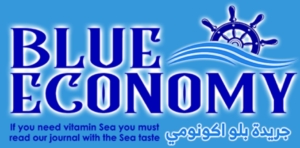Despina Panayiotou Theodosiou, President of the WISTA International
Marek Grzybowski (3) questions for Despina Panayiotou Theodosiou, President of the WISTA International

By: Marek Grzybowski
Despina Panayiotou Theodosiou, has been awarded as International Personality of the Year at the 16th Lloyd’s List Greek Shipping Awards ceremony, held on 06th December 2019 in Athens. The award is given to the individual who has stood out during the year in terms of contribution to the international maritime industry. Despina has been included in Lloyd’s List Top 100 Most Influential People in shipping globally, in 2017 and 2018. In 2017 she attained further credit as one of Lloyd’s List’s Top 5 Next Generation executives and in both years, she was also listed in the Top 10 Women in Shipping internationally. In May 2019 she has won the Efkranti Award for “Best Strategic Communication” and in October of the same year she has been selected as Woman Leader in International Shipping at the WHO IS WHO International Awards in Athens.
Other titles and awards include:
- “Top Professional” and “Cyprus Business Woman of the Year”, National Cyprus Business Woman of the Year Awards 2015.
- “Woman of the Decade in Innovation and Leadership”, Global Women Economic Forum, New Delhi 2017
- “10 Women to Watch”, Youngship International – Norshipping, Oslo 2017.

About the role of women in maritime logistics and the maritime industries continues to grow
But in spite of the objective at WISTA is not just to reduce the pay gap and improve gender diversity but also It is to help make sure that when important topics such as safety, environmental regulations, digitalization, trade, in fact, any issue, get discussed that all the possible voices that should be heard are heard. this is an explosive interview for eblueeconomy

Marek Grzybowski: What are the main idea and missions of the Women’s International Shipping & Trading Association?
Despina Panayiotou Theodosiou: While WISTA was established in 1974 as a place for women in shipping to meet and discuss industry issues on their own terms, we have rapidly grown in numbers, geography, and what we can achieve.

Today we are an incredibly diverse network of professionals in 55 different countries. Our mission has grown with us. Not only is our core purpose about minimizing the gender leadership gap, but about raising awareness and facilitating education, idea exchange, and projects across the maritime, logistics, and trade sectors. We work diligently to bring diversity into the collective voice of experts on key themes being addressed in our industries, such as environmental rules, technology evolution, and trade facilitation.

Marek Grzybowski: In the time of the COVID-19 pandemic, women have made important gains in representation, and especially in senior leadership. Women are now significantly more burned out—and increasingly more so than men. Despite this added stress and exhaustion, women are rising to the moment as stronger leaders and taking on the extra work that comes with this: compared with men at the same level, women are doing more to support their teams and advance diversity, equity, and inclusion efforts – These are the conclusions from the last McKinsey Report – Women in the Workplace 2021. The role of women in maritime logistics and the maritime industries continues to grow. What is the place of women in the global maritime business?
Despina Panayiotou Theodosiou: The role of women is as important as ever, just as important as men in society and industry, in leadership positions and all roles.
The Mckinsey Report, which is about women in the corporate USA, not the global shipping and logistics industry, is an essential snapshot of a western developed country. While rather focused, it does add some voice to other diversity issues in corporate America.
Shipping and logistics are global industries. A key difference here is that our industries are highly active in developing regions where women’s gender balance and current opportunities are somewhat different. Having said that, we are culturally diverse by the global nature of our industries. But we still see a lot of evidence that the cultural backdrop around the world is a significant barrier to gender balance.
We ran our own industry survey with the International Maritime Organization recently, with the results about to be published. I can reveal that we see some areas in the shipping and maritime industry where there are significant improvements in gender balance, but others where the balance is appallingly low. This reveals where we and others who wish to make improvements can focus our efforts.
We have also seen that the pandemic and the restrictions have negatively impacted women. In a corporation, the percentage of women may be low but located often in middle and low management or executive roles, perhaps in part-time positions (due at times to family commitments and restrictions not always shared by men). These roles are first to be cut when economic difficulties call for corporates to make staff redundant.
On the flip side, we have seen reports – not shipping-focused but general corporate reports – that have shown that diversity policies lead to significant improvements in staff retention, happiness, and, importantly, financial results.
You ask what the role is of women. It is the same as the role for men.

Marek Grzybowski: WISTA International organized their conference in Hamburg with discussions exploring the theme of ‘Today’s Actions for Tomorrow’s Business’ in the maritime industry. What are the current challenges in the maritime transport industry? With what initiatives does WISTA appear on the international forum?
Despina Panayiotou Theodosiou: Good question. Our objective at WISTA is not just to reduce the pay gap and improve gender diversity. It is to help make sure that when important topics such as safety, environmental regulations, digitalization, trade, in fact, any issue, get discussed that all the possible voices that should be heard are heard.
